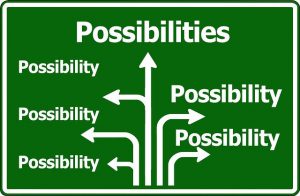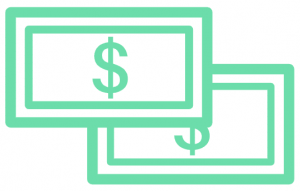

“Opportunity Cost” is what needs to be given up to get something. This is different from an item’s price.
Imagine you want to buy some stock – you can afford one share of either Apple (AAPL) or Alphabet, Inc. (GOOG).
Your Opportunity Cost of buying one is that you cannot also buy the other, meaning you’ll miss out on any potential returns and dividends.

This problem appears in every choice you make – by doing one thing, you can’t do something else. Keeping the opportunity cost of each decision in mind is an important part of both personal finance and economics. Each person needs to keep in mind what they are giving up from each choice (whether it is using their cash to buy one thing or another, or to use it for saving and investing) in order to make sure they are making the most of the resources they have available.
Each time you make a choice between two or more alternatives, you are indirectly saying that the benefit you get is bigger than the opportunity cost. This is not just how you spend your money, it also is how you spend your time.
Besides your weekend choice, a clear example of Opportunity Cost is your option to spend or save. Every time you spend money, you gain the item you’re buying, but you’re losing the opportunity to buy something else.

This is why your Emergency Fund is so important – keeping money set aside means that you have a huge potential of big expenses that you could endure (if the need comes up).
Now that you know a bit more about opportunity cost, close this lesson to continue the game!
[close]